California CCTV Installation Codes & Compliance: What Roseville Projects Must Follow
Introduction
Installing a CCTV system in Roseville is more than just purchasing cameras and mounting them. Businesses, schools, and residential developers must navigate California-specific codes and compliance regulations to ensure safety, legality, and operational efficiency. Following these standards prevents legal issues, fines, and liability risks while optimizing surveillance effectiveness. From building codes and low-voltage wiring regulations to privacy laws and state-mandated installation practices, understanding compliance is critical for every CCTV project in Roseville.
This guide explores California CCTV installation codes, relevant compliance standards, best practices for Roseville projects, and emerging trends in legal and technical requirements.
Table of Contents
- Understanding California CCTV Regulations
- Key Codes for CCTV Installation
- California Building Code (CBC)
- Low Voltage and Electrical Codes
- Fire and Safety Codes
- Privacy and Data Protection Laws
- Licensing and Professional Requirements
- Best Practices for Roseville CCTV Projects
- Common Compliance Mistakes to Avoid
- Emerging Trends and Future Requirements
- Conclusion
- FAQ
- References
Understanding California CCTV Regulations
California regulates CCTV installation through a combination of state building codes, electrical codes, safety regulations, and privacy laws. Compliance ensures that surveillance systems are safe, functional, and legally permissible, particularly in commercial, public, and multi-family properties.
Key Objectives of CCTV Compliance:
- Ensure structural safety and proper wiring.
- Protect employee, tenant, and customer privacy.
- Maintain system reliability and cybersecurity.
- Enable integration with emergency systems such as alarms and fire detection.
Key Codes for CCTV Installation
California Building Code (CBC)
- CBC Chapter 27 & 33: Addresses building safety, mounting structures, and penetration through walls and ceilings.
- Requires proper anchoring and support for cameras, preventing damage during seismic events.
- Ensures that CCTV installations do not obstruct fire exits, hallways, or emergency pathways.
Low Voltage and Electrical Codes
- CCTV systems often rely on low-voltage wiring, including Cat5e, Cat6, or coaxial cables.
- California Electrical Code (CEC), Article 725 & 800: Governs low-voltage systems, data cabling, and communications equipment.
- Specifies:
- Proper conduit usage
- Separation from high-voltage lines
- Correct grounding and bonding practices
- Non-compliance can result in fire hazards or system malfunctions.
Fire and Safety Codes
- CCTV placement must comply with California Fire Code (CFC) requirements:
- Cameras should not obstruct sprinkler coverage or emergency lights.
- Integration with fire alarm systems is recommended for monitoring critical areas.
- In some commercial facilities, CCTV footage may be required for incident investigation under fire and safety regulations.
Privacy and Data Protection Laws
California is a strict privacy state, governed by laws such as:
- California Consumer Privacy Act (CCPA): Applies to businesses collecting personal data via surveillance.
- Employee Privacy Laws: CCTV in workplaces must balance monitoring needs with employee privacy rights.
- Public Spaces: Recording in public areas must comply with signage and notice requirements.
Best practices:
- Place visible signage where cameras are recording.
- Avoid camera placement in private areas like restrooms or changing rooms.
- Secure stored footage using encryption and access controls. AI & Smart Analytics Are Transforming CCTV
Licensing and Professional Requirements
- CCTV installations in Roseville must be performed by licensed contractors for low-voltage or security systems.
- California Contractors State License Board (CSLB) regulates licenses for electrical and low-voltage installations.
- Certified installers ensure:
- Compliance with building and electrical codes
- Correct camera placement and system reliability
- Proper documentation for inspections or insurance purposes
Best Practices for Roseville CCTV Projects
- Conduct a Site Survey: Identify coverage areas, mounting points, and wiring paths.
- Verify Code Compliance: Check CBC, CEC, and CFC regulations before installation.
- Professional Installation: Licensed contractors reduce risk of fines, system failure, and liability.
- Document the System: Maintain records of camera locations, wiring diagrams, and firmware updates.
- Integrate with Other Systems: Link cameras to alarms, access control, and emergency management systems.
- Regular Inspections: Schedule annual or semi-annual inspections to maintain compliance.
Common Compliance Mistakes to Avoid
- Installing cameras without permits or inspections.
- Mounting cameras in ways that obstruct fire exits or sprinkler systems.
- Using non-certified low-voltage wiring or improperly grounded cables.
- Ignoring employee or tenant privacy rights.
- Failing to update firmware or security protocols on networked cameras.
Emerging Trends and Future Requirements
- AI-Driven Analytics: Compliance increasingly includes ensuring AI systems are secure and privacy-conscious.
- Cloud Storage Regulations: California may impose stricter data retention and encryption requirements.
- Integration with Smart Cities: Roseville projects may need to align with city-wide security initiatives.
- Energy-Efficient Equipment: Sustainable and energy-compliant devices are gaining importance in building codes.
Conclusion
CCTV installation in Roseville is more than a technical task—it’s a compliance-driven project. Understanding and following California’s building codes, low-voltage regulations, fire and safety rules, and privacy laws ensures that surveillance systems are safe, legal, and effective.
Hiring licensed, experienced installers, conducting thorough site surveys, and maintaining proper documentation are essential steps for Roseville businesses, schools, and residential projects. Adhering to these codes protects assets, safeguards privacy, and ensures operational reliability, positioning your CCTV system as a long-term security solution. Top CCTV Systems for Roseville Businesses in 2025
FAQ
Q1: Do all Roseville CCTV projects require a permit?
Yes, most installations involving low-voltage wiring or structural mounts require permits.
Q2: Can I install cameras myself without a license?
DIY installations are allowed in limited residential contexts, but commercial projects must use licensed professionals.
Q3: What is the main low-voltage code to follow in California?
CEC Article 725 & 800 covers low-voltage and communications systems for CCTV.
Q4: How often should I inspect my CCTV system for compliance?
At least once a year, or after significant system upgrades or building modifications.
Q5: Can cameras record employees without consent?
California law requires balancing monitoring needs with employee privacy. Cameras should not record private areas like restrooms or locker rooms.
